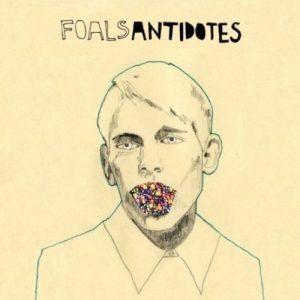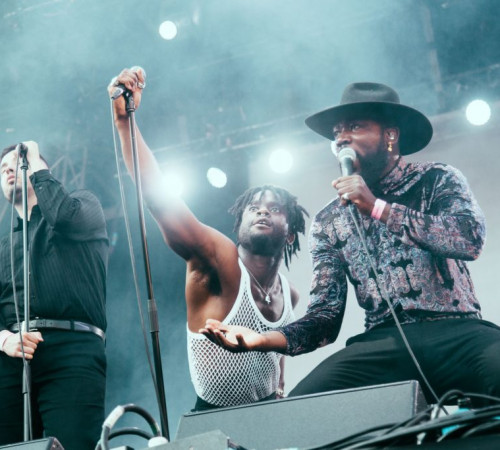
BRASH, exciting and with just a mild streak of self-assured arrogance, Foals’ Antidotes lives on as one of the most exhilarating debut albums to be released in modern indie music. The soundtrack to many teenage years and a gift to indie clubnights the world over, it has been ten years since the Oxford quintet bowled into town and knocked through the stalemate to shake up music irreversibly.
Released at the tail end of the mid-noughties indie-rock boom, Antidotes was a refreshing alternative to what was going on around it. Built around a web of pulsing angular guitar rhythms, pealing horns, muscular rolling snares and unpredictable tempo changes, the five-piece emerged with a sound that was hard to pin down. From math-rock to dance-punk to techno to afro-rock to just straight-up indie, critics were throwing all sorts of terms and influences at the band; but ultimately Foals had created an intelligent, challenging yet danceable pop record that appealed to the masses.
Their early sound was almost academic in its intricacy; their ability to consistently work avant-garde percussive noises and clever, unexpected tempo changes into songs that were anthemic and relentlessly funky was to be admired. Before the album’s release, they secured a major coup in getting Dave Sitek of TV in the Radio on board for production duties; but rather unexpectedly, rejected his mix and opted to release their own. Not only that, but they also made the bold decision to leave out Hummer and Mathletics; the two tracks that had thrust them into the spotlight in the first place. Foals felt it was important to create all new songs for Antidotes; and it was a move that paid off.
Bursting with urgency and anxiety, it was their self-imposed tightly wound approach that allowed for such a climactic effect to run through the album; the songs were full of tension that demanded release. And when they did open the pressure valve, they created some of the record’s finest moments like the wonderful crescendo in ‘Red Socks Pugie’ or the thunderous breakdown in ‘Two Steps Twice‘. It was a case of balancing the frenetic anthems like and the insistent ‘Balloons’ with spacey, atmospheric build-ups seen on the outstanding ‘Heavy Water’; and they did so brilliantly.
Full of abstract lyrics that didn’t give much away, frontman Yannis had previously said the album stemmed from dreams and visual ideas; ostensibly centred around ideals of escapism and desertion. Whether yelping over ‘Balloons’ about love being an exhaustible fuel or yearning to disappear on ‘Olympic Airways’, it’s as if they were bad dreams he wanted to wake up from. “Let’s disappear until tomorrow”, he suggests on the latter, “let’s go to an aviary far from home”. This rather chilly sense of detachment was reinforced by the almost clinical sound of the album. While it was full of engaging melodies, it was a record fuelled by its pulsing rhythms; led by Jack Bevan’s almost mechanical drumming and exacerbated by the vocal barks, razor sharp guitar lines and creeping horns around him.
Antidotes also had timing on its side though. Emerging at a time when landfill indie was going out of fashion, they brought a creative drive and insatiable energy into UK music. Bands like Klaxons, The Maccabees and Late of The Pier were injecting colour into what had become a rather drab scene; but it was still early days for the purveyors of restless time signatures, fidgety guitars and arty, intelligent indie. Very much the antidote to the derivative mainstream, Foals’ debut album secured their position at the forefront of this new movement in guitar music.
While it may not have been a game-changer or a certified ‘classic’, Antidotes set the wheels in motion for what was to come from the band; and for some diehard fans it still resonates as Foals’ best record to date. Deeply original and full of creative ingenuity, it saw the five-piece emerge immensely from the crash of noughties indie and transform into the formidable outfit they are today.








